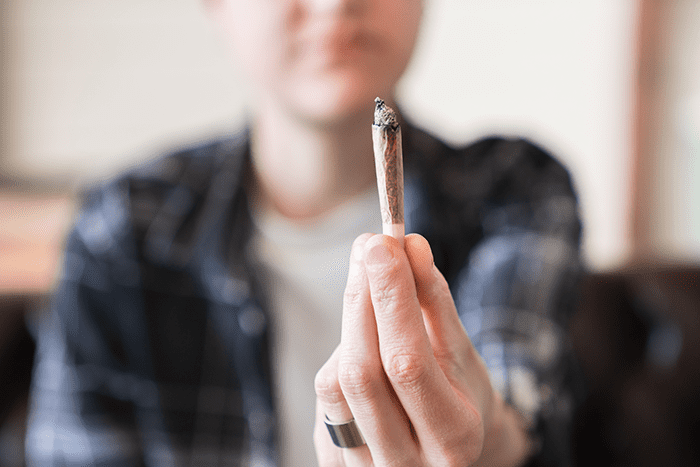
Not long ago, marijuana was considered a mild, mellow drug. In the 1980s, the average joint contained around 3% THC, the psychoactive compound that produces the “high.” Today, that number has skyrocketed. Most cannabis products now contain 15–20% THC, and some concentrates tip the scales at more than 30%. This isn’t the same pot from the 70’s, it’s a far more potent substance, and the effects are rippling through our communities, our workplaces, and the lives of young people.
While legalization has made cannabis more accessible, it has also ushered in an era of products with unprecedented strength. The human brain, especially the adolescent brain, isn’t built for this level of exposure. Scientists warn that regular use before age 25 can disrupt brain development, affecting memory, learning, attention, and emotional regulation. Mental health issues are also on the rise among heavy young users, with links to anxiety, depression, and even psychosis. For many teens and twenty-somethings, what starts as casual recreational use can quietly evolve into a serious health challenge.
Cannabinoid Hyperemesis Syndrome (CHS)
One of the most troubling conditions emerging in recent years is Cannabinoid Hyperemesis Syndrome (CHS), a paradoxical illness that affects long-term, heavy cannabis users. Instead of relaxing the body, the drug begins to wreak havoc on the digestive system, causing relentless waves of nausea, vomiting, and stomach pain. The symptoms can be so severe that sufferers often end up in the emergency room, desperate for relief. Many discover, oddly enough, that only a scalding hot shower offers temporary comfort.
CHS was almost unheard of two decades ago. Now, emergency departments in North America are seeing case numbers surge. In Nevada, ER visits linked to CHS rose thirteenfold (1200 %) between 2014 and 2021, especially among young adults aged 19–24. One Canadian study found nearly half of CHS patients needed hospitalization. Doctors are starting to recognize the pattern, but misdiagnosis is still common, often leading to costly and unnecessary tests before someone finally asks the right question: “Do you use cannabis regularly?”
The impact doesn’t stop at the hospital doors. CHS takes a toll on the workforce, too. Employees dealing with cycles of nausea, missed workdays, and brain fog from heavy cannabis use are less productive and more likely to require extended medical leave. Employers often struggle to connect the dots, especially in states where cannabis use is legal and no workplace testing is in place. What looks like absenteeism or declining performance can sometimes be traced back to a health issue no one’s talking about.
Follow the Science
The science is clear, today’s marijuana is fundamentally different from the product people used decades ago, and the risks are evolving with its potency. For young people, the stakes are especially high. Regular high-THC exposure during formative years can shape the trajectory of mental health, academic achievement, and even future career potential. For workers, chronic use can quietly undermine performance and well-being, sometimes leading to the debilitating effects of CHS.
The solution isn’t simply scare tactics or prohibition, instead it’s awareness. We need honest conversations with teens, college students, and our employees about the risks of high-potency cannabis. Healthcare providers must be better equipped to spot CHS early, and public health campaigns should focus not just on cannabis safety but on potency awareness. Policymakers might also consider regulations around THC limits, just as alcohol content is regulated in beer, wine, and spirits.
Cannabis may be legal in many places, but legality doesn’t equal harmlessness. As potency rises, so do the stakes, for our youth, our workforce, and our health systems. It’s time to stop pretending that “weed is just weed” and start recognizing it for what it has become: a powerful drug with the potential for powerful consequences.
Detect and Deter
Marijuana can be detected in the system as early as 1-3 hours after use. We offer a Marijuana Breath Test (MBT) that can help combat and deter workplace marijuana use.